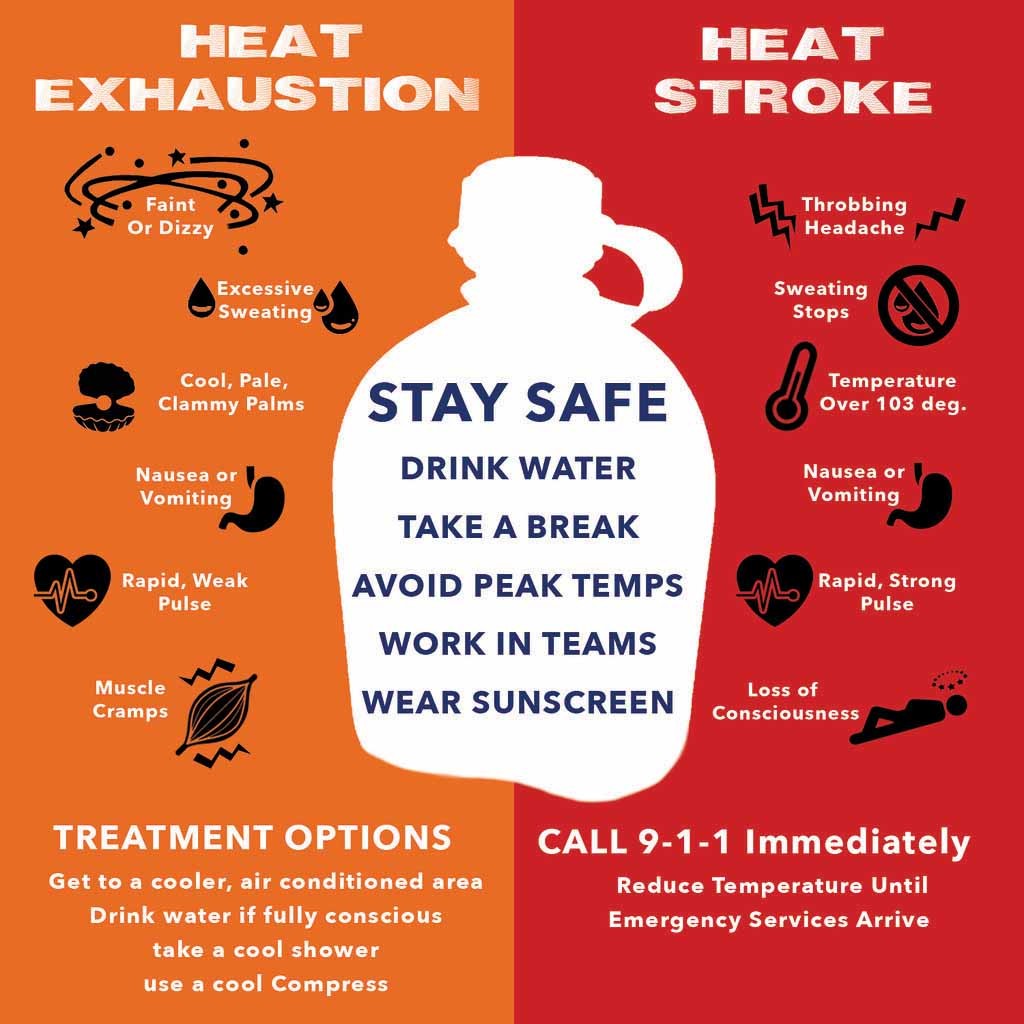How Long Can You Live Without Water And Food? Understanding this critical survival factor is vital, and FOODS.EDU.VN provides the insights you need. Generally, a person can survive only a few days without water and several weeks without food, but numerous factors play a crucial role. Dehydration, starvation, and survival tips are key areas to explore.
1. Why Does The Period Of Time That You Can Live Without Water Vary?
The period of time you can survive without water varies significantly due to environmental factors, activity level, age, health status, weight, gender, and food intake. Let’s break down these factors:
-
Environment:
- Temperature: Dr. Claude Piantadosi from Duke University notes that at an average outdoor temperature, a person can typically survive about 100 hours without water. This time can be slightly longer in cooler conditions and shorter when exposed to direct sunlight. During hot weather, the risk of dehydration increases significantly for all age groups.
- Humidity: High humidity impairs the body’s ability to cool itself through sweat evaporation. This can lead to increased body temperature and potentially heatstroke, which can be fatal if untreated, according to the Mayo Clinic.
- Activity Level: The body needs more water during exercise compared to rest. Increased exercise intensity and duration lead to higher body heat production and sweating, both contributing to dehydration.
- Age: Older adults generally have less water in their bodies and are more sensitive to water loss. Additionally, they may have a decreased sweating capacity or aerobic fitness, making them more susceptible to heat intolerance, as noted in a 1993 Institute of Medicine publication. Young children are also particularly vulnerable to dehydration.
- Health Status: Conditions like severe vomiting and diarrhea, common in young children, can rapidly lead to dehydration. People with fever or frequent urination (e.g., due to uncontrolled diabetes) are also at higher risk, according to the Mayo Clinic.
- Weight: Overweight individuals are at increased risk during heat-related illnesses, as elevated heat levels in the body are often caused by a lack of water, as stated by the Centers for Disease Control and Prevention (CDC). People who weigh more generally need more water, according to the Cleveland Clinic.
- Gender: According to the U.S. National Academies of Sciences, Engineering, and Medicine, women should consume about 2.7 liters of fluid daily, while men should aim for 3.7 liters. However, women require more water during pregnancy and breastfeeding.
- Food Intake: Food contributes significantly to overall water intake. The Mayo Clinic and Cleveland Clinic both suggest that about 20% of daily fluid intake comes from food. Consuming foods with high water content, such as cucumbers, celery, and watermelon, can affect hydration status.
2. What Can Help Improve The Chance Of Surviving Without Drinking Water?
To improve your chances of survival without water, consider these strategies:
- Minimize Activity Level: Reduce unnecessary energy expenditure and excessive sweating to conserve body water.
- Regulate Body Temperature: Maintain a comfortable body temperature by staying in appropriate environments and wearing suitable clothing for the weather.
- Travel Smart: Plan travel during cooler times of the day, such as early morning.
- Eat Foods High in Water Content: Choose easily digestible foods with high water content to support fluid intake.
- Avoid Certain Medications: If possible, avoid diuretic medications (water pills) and other medications that increase urination.
- Strengthen Your Immune System: A robust immune system can reduce the risk of illnesses that cause vomiting and diarrhea, which can deplete body water.
3. What Can Help Decrease The Chance Of Surviving Without Drinking Water?
Certain behaviors and conditions can decrease your chances of surviving without water:
- Drinking Alcohol: Alcohol increases urination, promoting dehydration.
- Expending Too Much Energy: Higher energy expenditure requires more water to replenish what is used.
- Eating Too Much Food: Survival expert John Wiseman advises against eating or minimizing food intake when water is scarce because digestion requires water.
- Eating Snow: According to a 1996 publication by the Institute of Medicine, converting snow into water is an inefficient use of time and energy. Eating snow can also lower body temperature and use energy to melt it.
- Drinking Seawater: The U.S. National Ocean Service notes that seawater’s high salt content leads to more thirst and dehydration.
- Staying at a High Altitude: High altitudes can cause increased urination and faster breathing and sweating rates, leading to greater fluid loss, as noted by the Wilderness Medical Society and Mayo Clinic.
4. When Does A Person First Feel Thirsty After Stopping Drinking Water?
Thirst is typically felt when the concentration of electrolytes in the blood rises by 2-3%. This electrolyte concentration, known as plasma osmolality, is detected by receptors in the anteroventral hypothalamus of the brain. Thirst is the body’s signal that it needs more water, as noted by Unicef, and Dr. Irvin Sulapas from Baylor College of Medicine states that “if you’re thirsty, you’re already dehydrated.”
5. Does Water In Food Help When Drinking Water Is Restricted?
Yes, consuming foods high in water content that are easily digestible can significantly help with overall fluid intake when drinking water is restricted. According to Wiseman, digesting fat requires a lot of water, so it should be avoided. The Federal Emergency Management Agency (FEMA) recommends avoiding salty foods as they increase thirst.
Foods high in water content include cucumbers (95% water), celery (95%), iceberg lettuce (95%), tomatoes (95%), zucchini (nearly 95%), spinach (93%), cauliflower (92%), watermelon (91%), yellow melon (e.g., honeydew, 91%), strawberries (91%), and cantaloupe (90%).
6. What Body Functions Are Most Affected By Not Drinking Water?
Several body functions are significantly affected by dehydration:
- Cognitive Performance: Dehydration can lead to confusion, dizziness, and impaired focus and clear thinking.
- Mood: It can cause restlessness, agitation, tiredness, and mood swings, potentially due to changes in dopamine levels.
- Physical Function: Dehydration results in weakness and decreased physical performance.
- Waste Elimination: Symptoms include dark-colored urine, reduced urine volume, and constipation.
- Heart and Lung Function: Dehydration can cause a fast heart rate, low blood pressure, and rapid breathing.
- Temperature Regulation: It can lead to fever.
- Digestion: Dehydration impairs the body’s ability to produce saliva.
- Joints: It reduces the body’s capacity to lubricate joints.
- Cell Function: Dehydration weakens systems responsible for cell growth, reproduction, and survival.
7. What Are The Risks Of Water Intake Restriction (Dehydration)?
Dehydration can lead to impaired cognitive ability and decreased work productivity:
- Impaired Cognitive Ability: A study by Gopinathan et al. found that mental function significantly decreases with a 2% or more loss of body weight due to dehydration, affecting short-term memory, visual tracking, attention, and arithmetic ability.
- Decreased Work Productivity: A review by PhDs Robert Kenefick and Michael Sawka from the US Army Research Institute of Environmental Medicine noted that dehydration negatively impacts worker productivity. The following graph shows that reaction times increase with dehydration.
A study by Wasterlund and Chaseling on forest workers found a 12% reduction in productivity due to decreased water intake.
8. How Does The Percentage Of Water In The Body Affect Lifespan?
The percentage of water in the body significantly affects lifespan; an 8% loss or more can be fatal. Water makes up about 75% of body weight in infants, 70% in adults, and 50% in older adults, making the latter more sensitive to changes in body water.
People with less fat tissue tend to have a greater percentage of body water. Men generally have a higher percentage than women due to women having more body fat.
According to BioMed Central (BMC) Public Health, a loss of 1-2% of body weight due to water is associated with decreased cognition; 4% loss results in decreased performance, headaches, tiredness, and irritability; and 8% loss or more is fatal.
9. What Precautions Are Helpful For A Person Whose Access To Water Is Restricted While Out In Nature?
If you have restricted access to water in nature, consider these precautions:
- Avoid searching for water in areas where it doesn’t naturally collect.
- Be cautious of water pools lacking green vegetation, as they may contain toxic chemicals.
- Avoid trying to ration water over extended periods; drink what you need each day and focus on finding more water.
Survival expert John Wiseman recommends looking in valleys where water naturally collects. Dig in areas of vegetation or dry stream beds. Check crevices in mountains, under sand dunes near beaches, or near vegetation on cliffs. Jonathan Strickland from BrainStuff provides alternative methods for retrieving water in the wilderness.
Wiseman advises caution with pools lacking green vegetation and emphasizes that water from pools must always be boiled before drinking.
FEMA recommends drinking the necessary amount each day instead of rationing if you have a limited supply, focusing on finding more water afterward.
The British Medical Journal (BMJ) recommends an average fluid intake of about 1.5 liters per day, supplemented with 1.5 grams of sodium chloride daily (about half a teaspoon of table salt). However, excessive sodium chloride can lead to low potassium levels.
10. How Does Water Intoxication (Drinking Too Much Water) Affect Lifespan?
Water intoxication, or overhydration, occurs when excessive water consumption leads to a decreased concentration of sodium in the body (hyponatremia). Normal sodium levels are around 135-145 mEq/L.
Excess water causes different problems than water restriction. Hyponatremia symptoms range from mild to severe. Rapid drops in sodium levels can cause brain swelling, potentially leading to coma or death. Hyponatremia can also cause seizures, muscle weakness and cramping, confusion, and tiredness.
Both too little and too much water are detrimental to the body.
FAQ Section
Q1: What is the “rule of 3” in survival situations?
The “rule of 3” suggests a person can survive for 3 minutes without air, 3 days without water, and 3 weeks without food.
Q2: How does temperature affect survival time without water?
Higher temperatures decrease survival time due to increased sweating and dehydration.
Q3: What are the first signs of dehydration?
Thirst is one of the first signs of dehydration.
Q4: What foods can help with hydration when water is scarce?
Foods like cucumbers, celery, and watermelon have high water content and can aid hydration.
Q5: How much water should women and men drink daily?
Women should drink about 2.7 liters of fluid daily, while men should drink about 3.7 liters.
Q6: What is hyponatremia?
Hyponatremia is a condition where the sodium levels in the blood are too low, often due to drinking too much water.
Q7: Why is drinking seawater dangerous?
Seawater has a high salt content that humans cannot process, leading to dehydration.
Q8: How does altitude affect hydration?
High altitudes can cause increased urination and faster breathing, leading to greater fluid loss and dehydration.
Q9: What are the effects of dehydration on cognitive function?
Dehydration can cause confusion, dizziness, and impaired focus and clear thinking.
Q10: What precautions should be taken when looking for water in the wilderness?
Avoid pools without green vegetation and always boil water from natural pools before drinking.
Understanding the factors that affect how long you can live without water and food is essential for survival and overall health. FOODS.EDU.VN offers in-depth knowledge and practical advice on nutrition, hydration, and survival strategies. Don’t just survive – thrive with the right information.
Ready to dive deeper into the world of nutrition and hydration? Visit FOODS.EDU.VN today to explore our extensive collection of articles, recipes, and expert advice. Whether you’re looking for detailed information on specific foods, techniques for improving your diet, or tips for staying hydrated, FOODS.EDU.VN has you covered. Plus, for personalized assistance, reach out to our team at 1946 Campus Dr, Hyde Park, NY 12538, United States, or contact us via WhatsApp at +1 845-452-9600. Start your journey to better health with foods.edu.vn!

